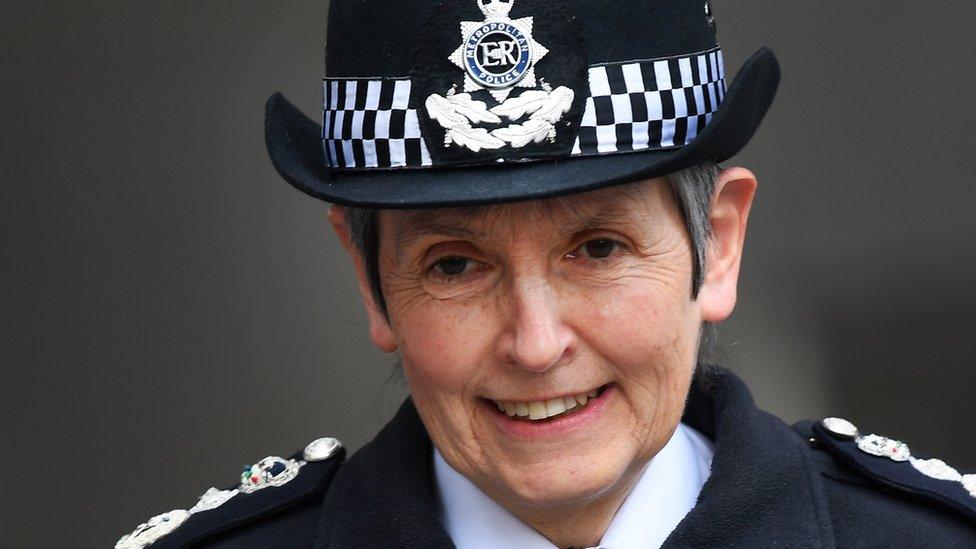Met Police: Inspectorate has 'substantial and persistent' concerns
- Published

The UK's largest police force will have to report to inspectors more regularly
There are "substantial and persistent concerns" about the Metropolitan Police's performance, a letter from a police watchdog reveals.
HM Inspectorate of Constabulary and Fire and Rescue Services (HMICFRS) has placed the force into a form of special measures, it emerged on Tuesday.
The letter, seen by the BBC, outlines various concerns, including about a "young" and "inexperienced" workforce.
It also notes "a persistently large backlog" of online child abuse cases.
Inspector of Constabulary Matt Parr wrote to Acting Met Commissioner Sir Stephen House, saying there had been a drop in public confidence in the force that had accelerated in recent years due a series of high-profile scandals.
'Seemingly incomprehensible failures'
He mentions the Charing Cross police station WhatsApp messages, the stop-and-search of British Olympic sprinter Bianca Williams and the strip-search of three children including Child Q.
Mr Parr also spoke about the "seemingly incomprehensible failures to recognise and treat appropriately a series of suspicious deaths, in the Stephen Port case" as well as the murder and rape of Sarah Everard by serving Met officer Wayne Couzens.
"For a considerable time, we have had substantial and persistent concerns about several aspects of the MPS' (Metropolitan Police Service) performance," he wrote.
"Ample explanations of these appear in various inspection reports."
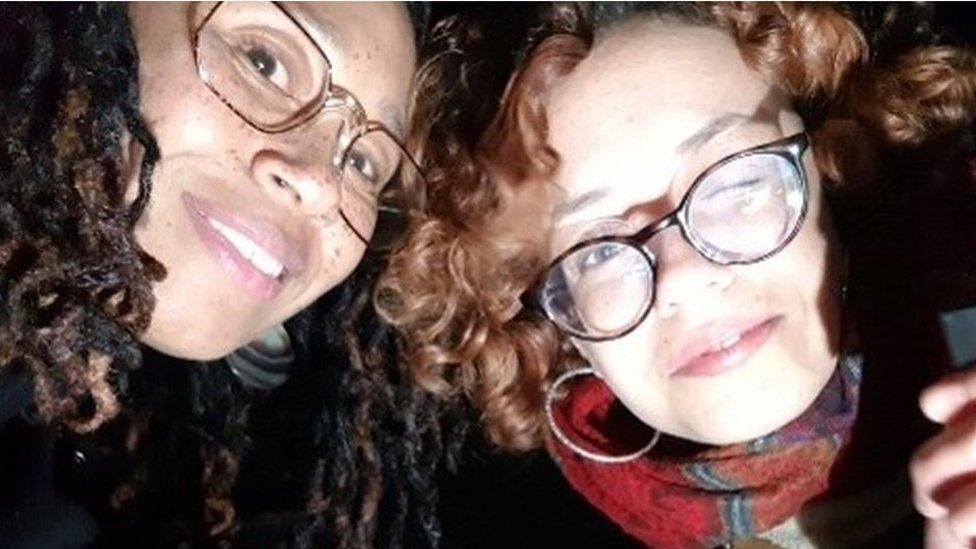
Sisters Bibaa Henry (left) and Nicole Smallman were repeatedly stabbed at an outdoor birthday gathering
Mina Smallman, the mother of murdered sisters Bibaa Henry and Nicole Smallman, whose bodies were photographed by police officers, spoke of the failings she encountered with the Met.
She told BBC Radio 4's Today programme the Met had been managing a "drip feed" of stories coming out in the last few years.
"This drip, drip feed is so upsetting for people who have gone through the trauma of bad policing."
She said: "They didn't do any searches at all... we had to do that ourselves. We made 30 calls to search for our girls - they didn't do their job.
"Everything was overshadowed by the police officers who were meant to be guarding the scene and were instead taking selfies and passing them on to 38 or 40 people, some of whom were not in the police force."
The Met declined to take part in Wednesday's Today programme.
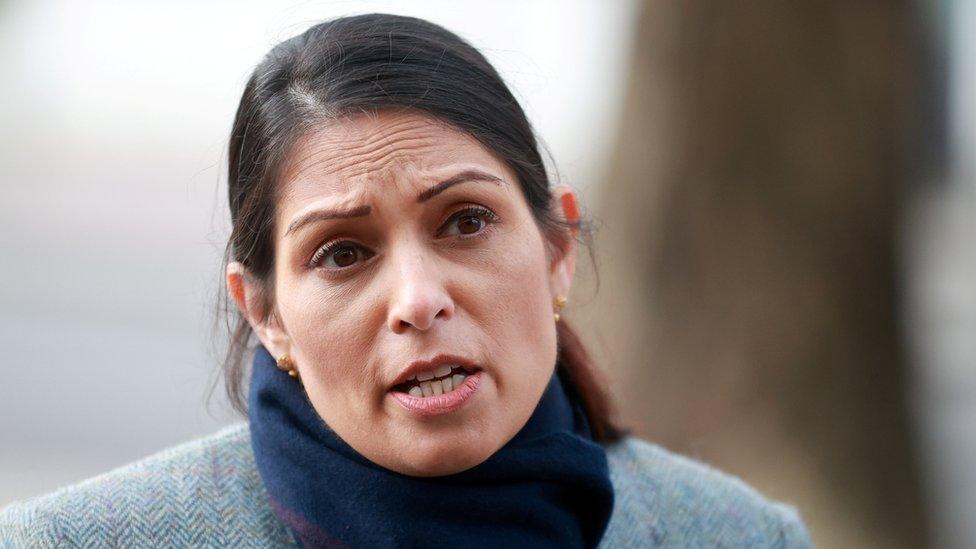
Home Secretary Priti Patel said she backed the move taken by HM Inspectorate of Constabulary
The Met is now subject to an enhanced level of monitoring used by HMICFRS, known as Engage.
It is deployed when a force "is not succeeding in managing, mitigating or eradicating" a cause of concern.
Mr Parr's letter also refers to concerns over a recent inspectorate report, which found the Met's approach to tackling corruption within its ranks to be "fundamentally flawed".
This report followed the failed investigation into the 1987 murder of private investigator Daniel Morgan.
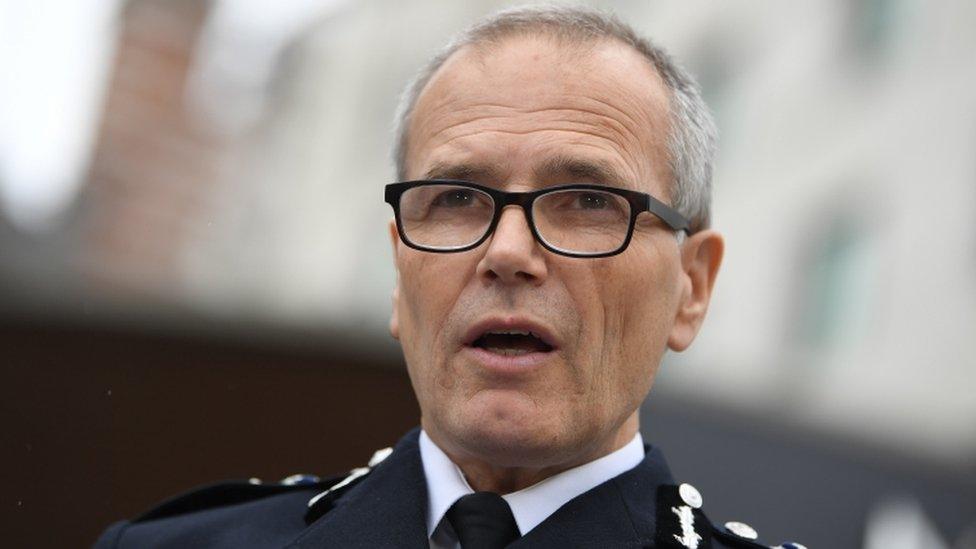
Sir Stephen House was appointed acting Met Commissioner after Dame Cressida Dick quit the force earlier this year
Mr Parr wrote: "In this report, we described a range of systemic failures.
"These systemic failures were not just in relation to counter corruption-related specialist matters but more generalist matters too, such as the quality of basic supervision provided to officers.
"In this respect, the gravity of the matter is amplified by the presence of a relatively young, inexperienced workforce - a consequence of the MPS' increased recruitment enabled by the police uplift programme, external."
Mr Parr also noted concerns over the Met's performance "falling far short of national standards" for the handling of emergency and non-emergency calls.
These include too many instances of a "failure to assess vulnerability and repeat victimisation, failures to provide crime prevention advice and failures to properly advise victims on how to preserve evidence"
He finishes by saying "As the UK's biggest police force, the Met's capabilities, experience, and achievements aren't in dispute, and neither are the major challenges the force routinely deals with successfully.
"However, there are lessons that the MPS can and should learn from others.
"In our experience, the force hasn't always shown a great willingness to do so."
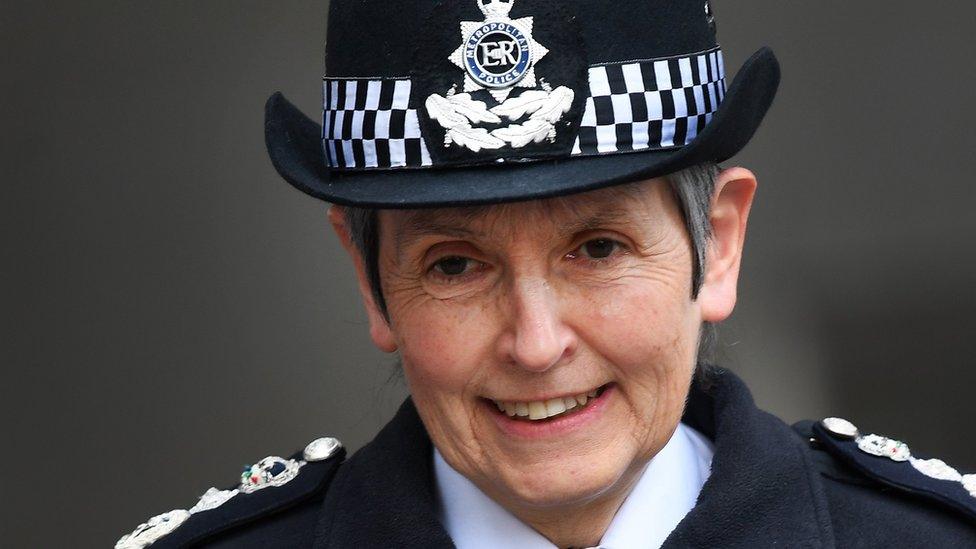
Dame Cressida Dick was forced to quit as commissioner after losing the confidence of London's mayor
In a statement the force said: "We recognise the cumulative impact of events and problems that the Met is dealing with.
"We understand the impact this has had on communities and we share their disappointment.
"We are determined to be a police service Londoners can be proud of. We are talking to the inspectorate about next steps."
Under the Engage process, the Met will be required to report to inspectors more regularly and could be asked to meet specific crime-fighting targets. It might also receive support from the College of Policing, the National Police Chiefs Council or other external organisations.
Other forces to have been the subject of Engage include Greater Manchester Police in 2020 and Cleveland Constabulary in 2019.

Follow BBC London on Facebook, external, Twitter , externaland Instagram, external. Send your story ideas to hellobbclondon@bbc.co.uk, external
- Published28 June 2022

- Published22 March 2022
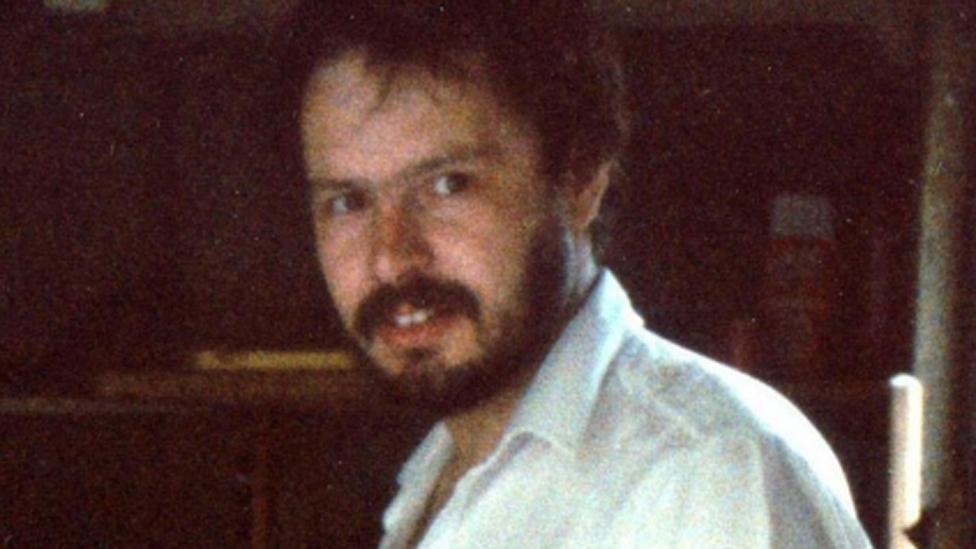
- Published11 February 2022
